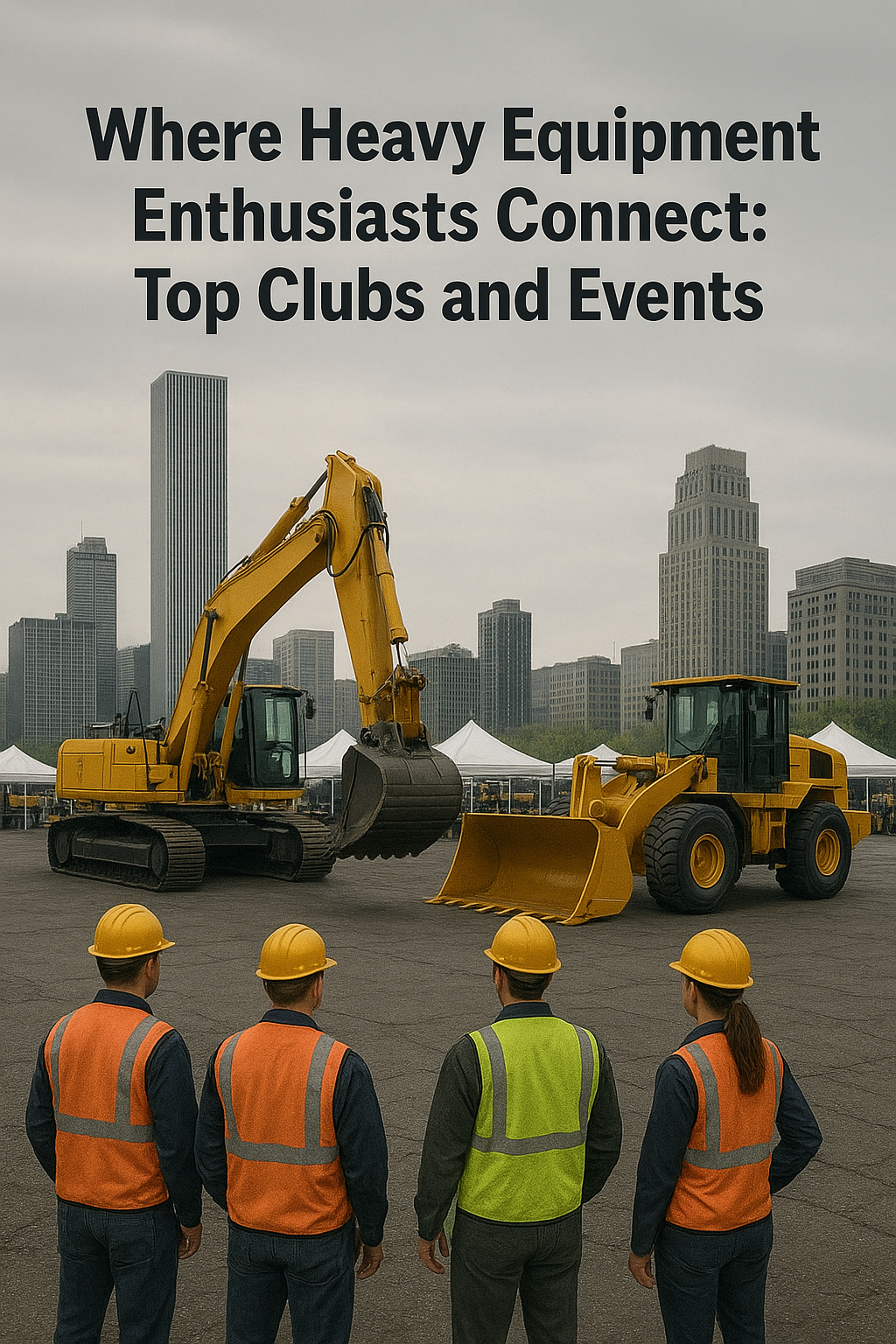Heavy Equipment Interesting Articles at HeavyEquipment.com
Enthusiast Corner
Where Heavy Equipment Enthusiasts Connect: Top Clubs and Events
For many heavy equipment enthusiasts, passion doesn’t stop at the job site—it’s a lifestyle. Whether it’s vintage dozers, modern excavators, or one-of-a-kind custom rigs, there’s something special about gathering with others who appreciate the iron, power, and craftsmanship behind these machines. Luckily, there are clubs, meetups, and events across North America that bring operators, collectors, and fans together to share stories, swap parts, and show off their machines.
________________________________________________________________________________
1. Equipment Shows and Expos
Major industry expos are the perfect place to connect with fellow equipment lovers, see the latest technology, and get hands-on with new models. Events like CONEXPO-CON/AGG in Las Vegas, The National Farm Machinery Show in Louisville, and Canada’s National Heavy Equipment Show in Mississauga attract thousands of professionals and enthusiasts each year.
Why it’s worth it:
You’ll see everything from massive mining trucks to compact equipment innovations, meet manufacturers, and network with operators from all sectors. These shows are a great way to blend business with your love for the machines.
________________________________________________________________________________
2. Antique Machinery and Tractor Clubs
For those who appreciate the classics, there are hundreds of antique machinery clubs across North America dedicated to preserving and showcasing vintage iron. These groups often host events where members bring restored dozers, graders, crawlers, and old-school tractors for live demonstrations and parades.
Some popular organizations include:
• Historical Construction Equipment Association (HCEA)
• Antique Caterpillar Machinery Owners Club (ACMOC)
• Local Steam and Tractor Associations
Why it’s worth it:
These events are living history lessons. You’ll meet restorers who’ve brought machines back from the brink and see the evolution of heavy equipment technology firsthand.
________________________________________________________________________________
3. Local Operator Meetups and Equipment Rallies
Across construction communities, informal meetups and rallies have started popping up. They might take place at gravel pits, fairgrounds, or equipment yards—where operators can show off unique machines, test attachments, and talk shop.
Why it’s worth it:
It’s not corporate—it’s community. You’ll meet people who genuinely love running equipment, swapping techniques, and keeping the old iron moving.
________________________________________________________________________________
4. Online Enthusiast Communities
Not every connection happens in person. Online platforms like Facebook Groups, Reddit (r/heavyequipment), and dedicated forums bring operators together from around the world. These digital clubs share restoration projects, job-site stories, and trade parts or advice.
Why it’s worth it:
You can stay connected with the community year-round, learn from operators across industries, and maybe even find your next project machine.
________________________________________________________________________________
5. Charity Events and Demonstration Days
Many construction companies, training schools, and local municipalities host equipment demo days or charity “Touch-a-Truck” events. These family-friendly gatherings give enthusiasts a chance to showcase machinery, let kids climb in the cab, and raise money for good causes.
Why it’s worth it:
It’s a chance to share your passion with the next generation and remind people just how impressive these machines really are.
________________________________________________________________________________
Final Thoughts
Yes—there are plenty of places where heavy equipment enthusiasts can connect, learn, and celebrate the machines they love. Whether it’s a massive trade show, a local antique machinery fair, or an online group filled with die-hard operators, these communities keep the spirit of heavy equipment alive.
After all, it’s not just about the steel—it’s about the people who run it, fix it, and keep its history alive.

